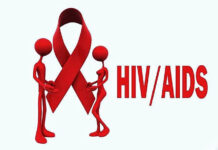Prostate cancer is a common cancer that affects men, especially those over 50. It starts in the prostate, a small gland that helps produce semen.
Causes:
– Age: The risk goes up as you get older, particularly after 50.
– Family History: If your father or brother had prostate cancer, you’re more likely to get it.
– Genetics: Certain gene changes can increase your risk.
– Race: It’s more common in African American men and less common in Asian men.
– Hormones: High levels of testosterone might play a role.
Symptoms:
Prostate cancer often doesn’t show symptoms early on, but as it grows, you might notice:
– Frequent Urination: Especially at night.
– Difficulty Urinating: Trouble starting or stopping the flow of urine.
– Painful Urination: A burning sensation when you pee.
– Blood in Urine or Semen: This can be a warning sign.
– Erectile Dysfunction: Trouble getting or keeping an erection.
– Pelvic Pain: Persistent pain in your lower abdomen or back.

Prevention:
While you can’t completely prevent prostate cancer, you can lower your risk by:
– Eating Well: Focus on fruits, vegetables, and whole grains, and cut back on red meat and fatty foods.
– Staying Active: Regular exercise helps keep your weight in check.
– Regular Check-Ups: Men over 50, or those with a family history of prostate cancer, should get regular screenings.
– Healthy Lifestyle: Avoid smoking and limit alcohol intake.
Understanding these basics can help you take steps to protect your health.




